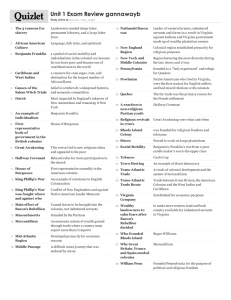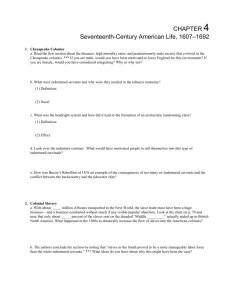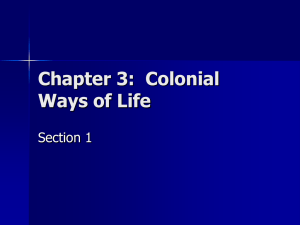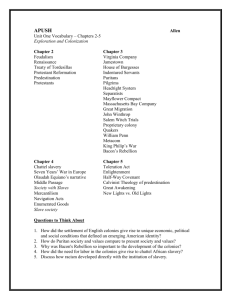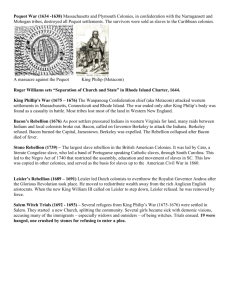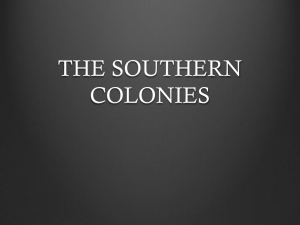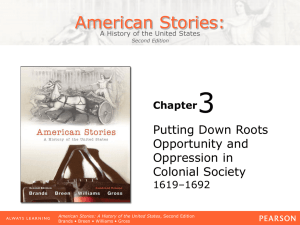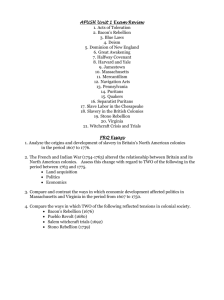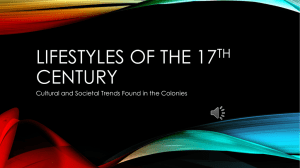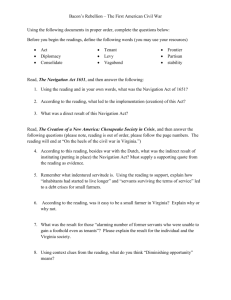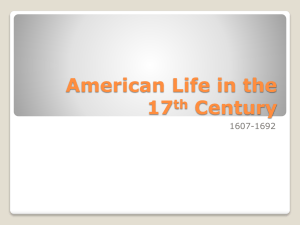Chapter 3 Notes
advertisement
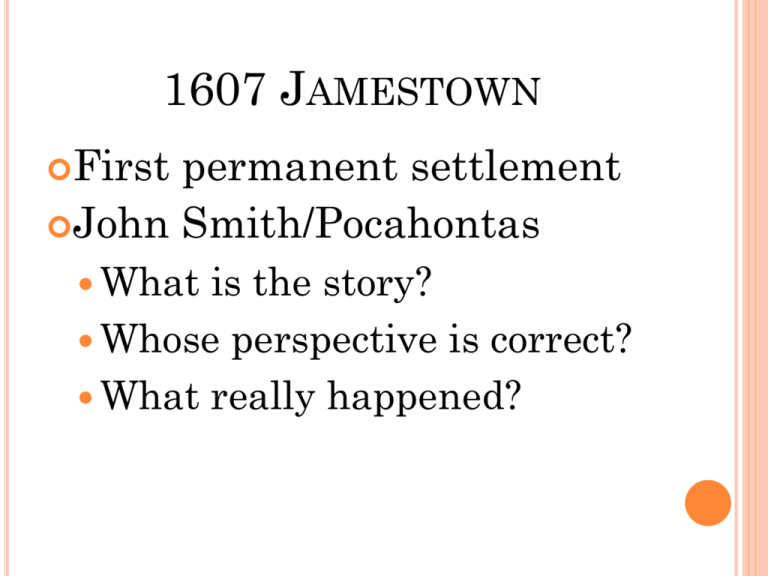
1607 JAMESTOWN First permanent settlement John Smith/Pocahontas What is the story? Whose perspective is correct? What really happened? ENGLISH COLONIZATION How does it compare to Spanish Colonization? What is the value of the English Colonies? What purpose do they serve? PURPOSE OF COLONIES Strengthen Mother Country. Source of Raw materials. Market Place for finished products. Mercantilism: an economic system developing during the decay of feudalism to unify and increase the power and especially the monetary wealth of a nation by a strict governmental regulation of the entire national economy usually through policies designed to secure an accumulation of bullion, a favorable balance of trade, the development of agriculture and manufactures, and the establishment of foreign trading monopolies PURPOSE OF COLONIES Military Base. Release valve for excess population. Export System of govt., values, religion. WHY DID INDIVIDUALS COME TO THE NEW WORLD? To make money. Liberty / Freedom. Adventure/ exploration. Fleeing from Justice. TREATY OF TORDESILLAS 1494 North America claimed by Spain 1588 Defeat of the Spanish Armada by England sparks confidence. VIRGINIA COMPANY Started with 6 million acres Indian massacre spawns investigation by the crown. Charter revoked due to dismal conditions Royal Colony 1624-1776 VIRGINIA COMPANY Laws approved by King House of Burgesses Oldest assembly in colonies All adult free men could vote for Burgesses Some level of independent thinking. VIRGINIA COMPANY Tobacco dominates the economy. Labor intensive 2-3 times the wages in Virginia than in England. HEADRIGHT SYSTEM Settlers received 50 acres of land if they paid for their own voyage. Pull factor What type of settler/pilgrim? INDENTURED SERVANTS Cannot pay for voyage. 4-7 year term Headright goes to the master/planter. 80% of immigrants Rich get richer Land not available for the poor LAWS (SLAVES, SERVANTS) Indenture can be double for running away. Slave status inherited from mother. Baptism or conversion to Christianity does not emancipate. (compatable LAWS (SLAVES, SERVANTS) Killing a slave is legal. Use of force to suppress rebellious slaves. LIFE IN THE CHESAPEAKE Religious to a certain extent. Most people are Protestant Real religion was tobacco and trying to make money. MERCANTILIST ASSUMPTIONS What was good for England should determine policy. YEOMAN FARMER Subsistence farming: BACON’S REBELLION 3 developments: 1) Ample supply depresses tobacco prices. Planter profits decrease. 2) Mortality rate declined most people outlived indenture. 3) Planter Elite formed compound their success. BACON’S REBELLION Land was in short supply. Indian lands protected and off limits. New freed men from Indenture had to get land on the frontier Population growing. REBELLION CRUSHED Bacon dead Reforms and Bacon’s laws repealed. New Governor in place. Little effort to stop encroachment of Indian land Better to fight the Indians MOVE TOWARD SLAVE SYSTEM Labor needs of Planters met. Slaves more expensive but never became free. Difference between planters and yeomen diminish. White = Free White majority maintained
